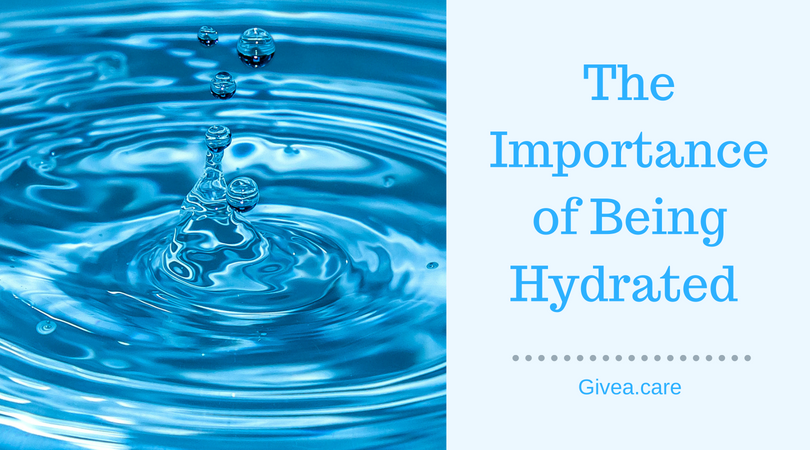Family Caregiver Tips | Healthy Hydration
One time a few years ago, I went to visit my grandfather Ken in his room at an assisted living center. He had been out all day with a couple of his other grandkids seeing the sites, grabbing lunch and the works. He was in his 80s, used a wheelchair to get around, and had an oxygen tank going too, but he still loved to live life, go out and laugh and tell jokes.
After a day of activity, he was exhausted and when I got to his room for a visit in the evening, his grandkids Sarah and Kim were at a loss, standing somewhat frightened beside his bed.
Ken had suddenly stopped talking, seemed to be confused, and was rather irritated.

I knew something was up right away, so I asked Sarah and Kim, “Has Ken had anything to eat or drink lately?”. They honestly couldn’t remember. That’s how fast dehydration can sneak up on you.
One second Ken was joking and laughing, and the next, he was exhausted, confused, and agitated.
I called the nurse on the hall for water, Ensure, and a yogurt right away. As soon as Ken had a little something to eat and plenty of fluids, he perked right up. Sarah and Kim were so thankful after having such a scare and seemed a bit embarrassed that they hadn’t even thought to make sure Ken had something to drink.
The truth is, that can happen so easily and to anyone. And did you know that older adults may also experience an age-related loss of their sense of thirst? That means they won’t necessarily tell you when they need water. If your loved seems to be feeling fine and getting on well, you’re not going to be counting the ounces of liquid they’re intaking like a hawk, are you?
Healthy hydration is such an important part of caregiving, however, and that is why we’re talking about it here.
Recommended hydration for the average healthy person equals around 8 cups of fluids, primarily water, a day. For someone who is incapacitated, who has trouble swallowing, or who can’t easily get themselves something to drink, staying hydrated can be a huge challenge.
Check out these healthy hydration tips for caregivers including setting water reminders for your loved one, using reusable water bottles, sticking to a rough schedule for drinking water, and eating lots of water-rich fruits, veggies, smoothies, soups, and stews.
If you are ever concerned about dehydration, consider giving your loved one electrolyte-enriched fluids like Pedialyte and talking to their doctor. A good way to gauge dehydration is by urine output. If your loved one is going less frequently and their urine is dark in color, chances are they are dehydrated and need more fluids asap. Water is always your safest bet as favorites like coffee can actually act as a diuretic and cause your parent to go to the bathroom more frequently, losing more fluids than they are replenishing.

